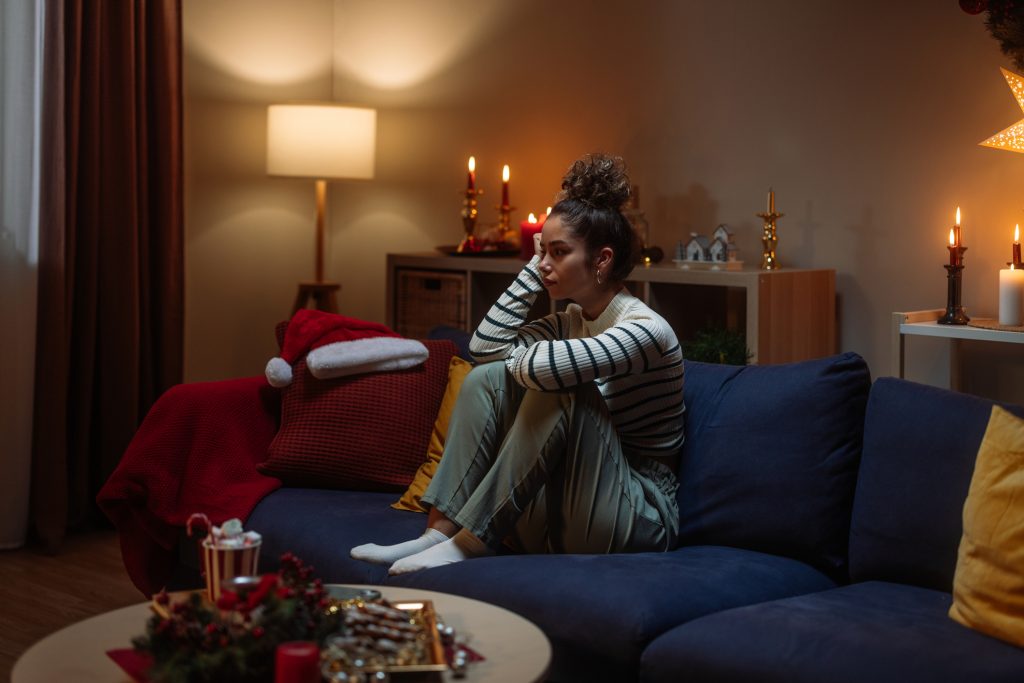 Even in the glow of holiday lights, many people quietly struggle with emotional stress, anxiety, or loneliness during the winter season. At Memorial Regional Health, we encourage our community to recognize the signs of holiday-related mental health challenges—and support one another with compassion, connection, and care. Learn how to manage the “holiday blues” and find local support resources in our latest article.
Even in the glow of holiday lights, many people quietly struggle with emotional stress, anxiety, or loneliness during the winter season. At Memorial Regional Health, we encourage our community to recognize the signs of holiday-related mental health challenges—and support one another with compassion, connection, and care. Learn how to manage the “holiday blues” and find local support resources in our latest article.
Memorial Regional Health/Courtesy photo
The holidays are traditionally seen as a time of celebration, connection and joy. But for many, the season can also heighten emotional stress. Financial pressures, family dynamics, loneliness, grief, shorter days and the bustle of holiday expectations can intensify symptoms of depression, anxiety or seasonal affective disorder. In rural communities like Moffat County — where long distances, winter weather and limited social outlets can add to everyday stress — it’s especially important to check in on yourself and those around you.
According to the National Alliance on Mental Illness, the “holiday blues” do not necessarily mean new mental health conditions emerge. Rather, people already managing mental health challenges may experience worsened symptoms or added strain. Loneliness, exhaustion and feeling overwhelmed are common themes this time of year, affecting people of all ages and backgrounds.
Understanding Local Patterns
While suicides do not typically spike during the holiday season itself, historical data shows that many communities — including Moffat County — see higher rates of suicide from fall through spring. Shorter days, harsh weather and extended isolation can contribute to worsening symptoms for those already at risk. Mental health challenges rarely have a single cause; instead, they build from stress, life circumstances and emotional strain that may intensify during the winter months.
This is why community awareness matters. If someone you know tends to struggle during certain seasons, a simple check-in can make a meaningful difference. Asking, listening without judgment, and staying connected are small but powerful steps that help break through isolation.
Coping Tips for the Holiday Season
If you’re finding the holidays difficult this year — or notice a loved one withdrawing or feeling overwhelmed — here are supportive strategies that can help:
• Talk openly
Sharing your feelings with a friend, family member, faith leader or healthcare provider can ease emotional burdens. Likewise, take time to ask others how they’re doing and truly listen.
• Limit alcohol and recreational substances
Overuse can worsen symptoms of depression and anxiety or impair decision-making during already stressful times.
• Maintain healthy habits
Regular sleep, balanced meals, physical activity and time outdoors can improve mood and help regulate stress.
• Take breaks when you need them
Step away from tense conversations, crowded gatherings or overwhelming schedules to regain calm.
• Set realistic expectations
You don’t have to do it all. Prioritize what truly matters and give yourself permission to simplify plans.
• Practice generosity
Acts of kindness — volunteering, sending a thoughtful message, or supporting a local nonprofit — can improve your own emotional well-being while strengthening community connection.
• Stay connected
Regular phone calls, coffee with a friend, shared meals or attending community events can help reduce isolation during the winter months.
Why Community Connection Matters
Humans thrive on connection, and the darker months of winter can challenge even the strongest support systems. Rural living can make this especially true. The holidays are a good time to reach out to neighbors, check on older adults and offer company or support to those who may feel isolated.
Talking openly about mental health, recognizing when someone is struggling and helping connect people to appropriate resources can save lives. Moffat County has strong local mental health providers, crisis support services and counseling resources available for anyone who needs help — whether for themselves or for someone they care about.
A Community Effort
Everyone experiences the holidays differently, shaped by their personal histories, expectations and life events. Being aware, compassionate and willing to support one another can create meaningful change. By starting conversations early, recognizing risk factors and encouraging use of community resources, we can help make the holiday season more supportive and manageable for everyone in our community.
